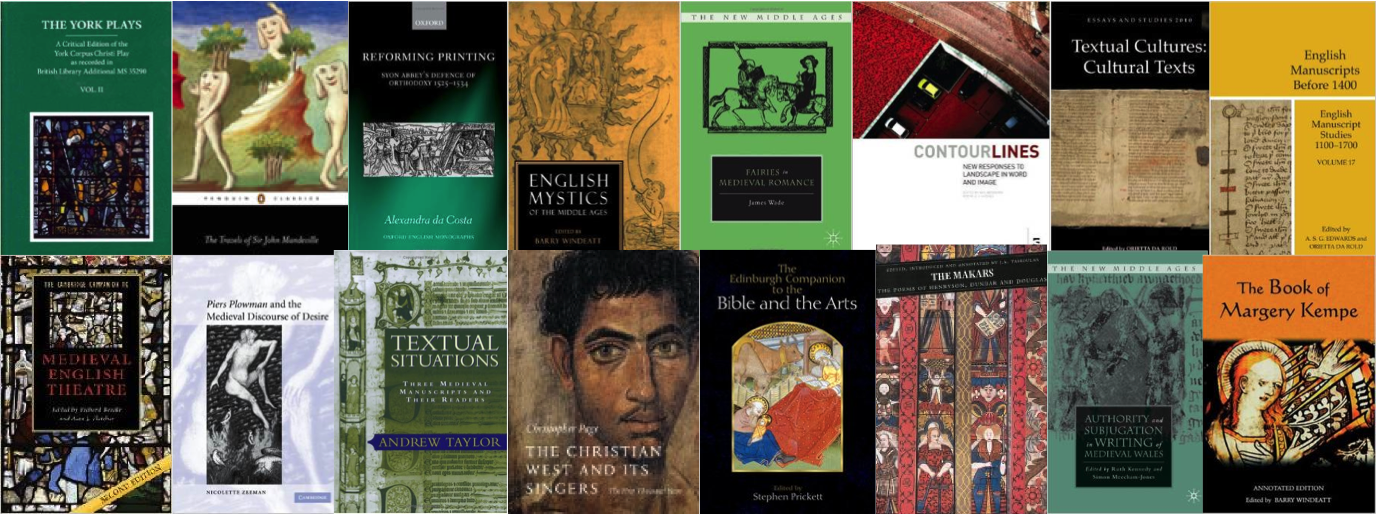Welcome to the webpages for the English Faculty’s research community in Medieval Studies. This site contains information about the research interests and activities of medievalists in the English Faculty, as well as information about current seminars and our MPhil.
The Medieval Research Group is a large, diverse, and lively research community. Drawing together those who teach and research the literary cultures of later medieval England from across the collegiate university, our collective expertise ranges over a host of literary-critical and conceptual questions, from the twelfth to the sixteenth century, and across the range of genres of literary writing in England and their European contexts. We meet regularly at the Medieval English Research Seminar, where a mix of visiting speakers and research group-members share emerging research for discussion.
A particular welcome if you’re a visiting scholar! We hope you will get involved with our research community while you’re here, and would very much like to know about your visit, so please get in touch (email pk453[at]cam.ac.uk).
Manuscript images copyright: The Master and Fellows of Emmanuel College, Cambridge
Members
- Scott Annett
- Elizabeth Archibald
- Anthony Bale
- Richard Beadle
- Joanna Bellis
- Jessica Berenbeim
- Hannah Bower
- François·e Charmaille
- Victoria Condle
- Helen Cooper
- Alex da Costa
- Sean Curran
- Jacob Currie
- Orietta Da Rold
- Rebecca Field
- Timothy Glover
- Anthony Harris
- Jane Hughes
- Philip Knox
- Hannah Lucas
- Charles Moseley
- Eleanor Myerson
- Lotte Reinbold
- Jacqueline Tasioulas
- Andrew Taylor
- James Wade
- Edward Wilson-Lee
- Barry Windeatt
- Nicolette Zeeman
PhD Students
- Simran Dhaliwal
- Rachael Hodgson
- MaryEllen Linnehan
- Patrick Loveday
- Millicent-Rose Newis
- Chloe Newman
- Genevieve Turner
- Logan Rivers
- Alexis Statz
- Weiliang Xu
